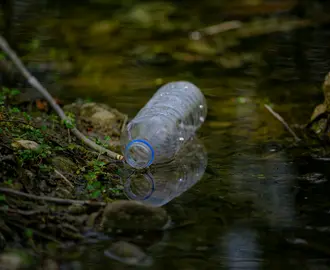Sustainability
How S-Lab host Mike Sauchuk and student team made recycling easier for Staples customers
Every time I’ve hosted an S-Lab project, I’ve learned something new. The MIT Action Learning S-Lab fosters this learning and developing environment and I feel very fortunate that Staples and I are a part of it.
Host an Action Learning project
As the newly minted senior director of recycling and sustainability at Staples Stores, Mike Sauchuk’s first challenge was to develop a strategy that moved the company’s green initiatives forward and also aligned with its business objectives. While Staples already engaged in sustainable practices, like using renewable energy, recycling at their warehouses, and partnering with vendors working toward sustainability goals, Sauchuk’s new job was centered on the retail stores and public-facing activities. After assessing many strategy options, he chose to focus on how to make it easier for the stores and customers to make better sustainable choices.
“This led me down the path of developing a Recycling Services program,” he says, “a program that would make recycling of various hard-to-recycle items easy and rewarding for consumers across America.”
After learning about the Sustainability Initiative at MIT Sloan from one of the many MIT alumni who work at Staples, Sauchuk was eager to see how a team of Sustainable Business Lab (S-Lab) students might be able to help him in his new endeavor. He challenged the first S-lab team he hosted in 2023 to focus on safe battery recycling.
Creating a real and rapid impact on new recycling program
“The bright minds at MIT help foster creative and unique solutions that help solve real world challenges,” Sauchuk says. “So, I make sure the projects our students focus on are not just busy work—they are problems, if solved, that can be implemented at Staples stores nationwide. And when I say implemented at Staples stores, I mean quickly—within 12 months.”
What Sauchuk learned from the first S-Lab project translated into Staples launching a full-blown battery recycling program one year later, in April 2024.
Following that successful experience, Sauchuk requested to work with another S-Lab team, which he tasked with exploring how to drive accelerated recycling traffic. Some of the recommendations the students made at the culmination of that project are currently being integrated into Sauchuk’s future marketing plans.
Gaining insights and inspiration for a sustainable future
“The most valuable part of the experience is not just the great ideas and work that come out of the classroom,” Sauchuk says, “but seeing the energy and enthusiasm of the future workforce that will be driving sustainability going forward.”
Today, Staples’ in-store recycling program allows customers to recycle items like e-waste, writing instruments, batteries, school supplies and a wide assortment of other hard-to-recycle items all year long, in every store nationwide. It also incentivizes customers to recycle with exclusive store credit and coupons. In line with Sauchuk’s original objectives, the program not only helps keep waste out of landfills (moving Staples’ green initiatives forward), but also helps drive traffic into stores that can lead to sales (aligning with Staples’ business objectives).
“While I like to think I have some influence on how the students on the MIT team think and act once they complete the course, I take away learnings as well,” Sauchuk says. “How the students approach challenges, their personal experiences and values, and their motivation for focusing on sustainability all influence me in how I run the sustainability division at Staples. This is just as much a learning experience for me as it is for the students.”
Creating a collaborative learning environment leads to real results
While Sauchuk has gained fresh new ideas and solutions from the S-Lab experience, he also makes sure the students benefit, too, by helping them learn how sustainability programs work outside of the classroom, in a real-world business environment.
“I come into meetings and projects with the understanding that I’m not the smartest person in the room,” he says. “Everyone is gifted in their own way, everyone has a different strength, and everyone can contribute. The best ideas and solutions come from a mixture of people with diverse backgrounds, experiences, and values. When people believe their ideas matter, they are motivated, engaged, and energized.”
After hosting two teams, Sauchuk is eager to work with more S-Lab students in the future and recommends the experience to other sustainability directors and managers. “Every time I’ve hosted an S-Lab project, I’ve learned something new. The MIT Action Learning S-Lab fosters this learning and developing environment and I feel very fortunate that Staples and I are a part of it.”



